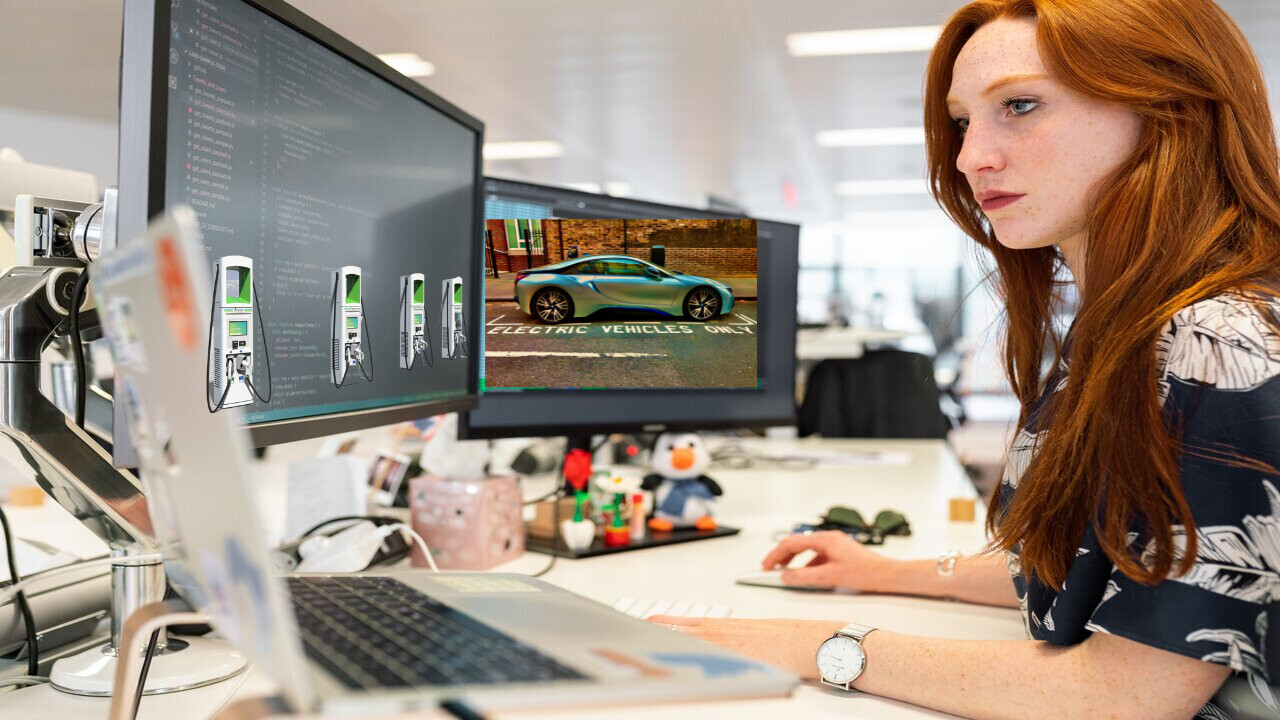
Are you looking for your next developer role? Well, you might want to consider a gig at a company aiming to make the world a better place.
Research commissioned by Ordnance Survey revealed that sustainability projects are an increasing area of focus for software developers. That’s because they offer job satisfaction, higher pay, and unique problem-solving opportunities.
The research surveyed 500 developers who have worked on projects in sustainable development, energy, natural resources, transport, mobility, and EVs.
Unsurprisingly, it found that the developers were motivated by the opportunity to do something positive for the world. But working in this space also revealed a couple of less anticipated perks.
I reached out to a developer recruitment platform and a few companies in the EV space.
Sekou White, VP of Global Brand Marketing at recruitment platform Turing.com told me that the report is spot on. The developers they’re collaborating with “are very open and looking for opportunities to work with companies doing good in the world.”
Green gigs mean more money
Investment — both private and public — into sustainability projects provides the capacity for higher remuneration.
Specifically, 82% of respondents reported that sustainability projects attract at least 5% higher remuneration, with British and Polish developers reporting at least 10% higher pay.
Bring your sustainability ideas
The survey also found that 94% of developers are bringing their own ideas to the table for ways to develop sustainability projects. Some 87% are able to choose what kind of projects to work on — and that’s hugely appealing.
Overall, the research highlighted how UK efforts to reduce transport emissions have driven up the demand for developers who can support the rollout of EV infrastructure. This includes the supporting energy infrastructure and the digital solutions that will accelerate electric vehicle adoption.
As Wayne Doyle, chief engineer at automotive tech company REE told me:
“What I love about REE is that we have truly embraced the clean sheet package opportunities afforded by EV architectures. More than that we are also developing vehicles that have never been thought of before. They take to the next level a reduction in environmental impact. All of these novel challenges mean every day at work is genuinely captivating and educational.”
And, working in sustainability tech right now, means not only doing good but solving real-world problems, to accelerate R&D in mobility. According to senior firmware engineer at Sibros, Sumeet Kler:
“What I am truly excited for with Sibros and the automotive industry is how many doors the connected vehicle space opens up with the products we are developing.”
The company creates automotive software that allows drivers to access vehicle data, perform software updates on-demand, and enable new functionality, such as doing remote diagnostics. It’s a space that’s continually evolving.
There’s a downside to a successful company
There is, however, a caveat. Government funding and VC investment in EVs and adjacent industries like ebikes, trucks, and charging infrastructure means that even a successful company could be in constant transition.
You may start with 20 team members only to grow threefold or more in months. This can take a big hit to the original company culture that attracted you.
Further, successful companies are often acquired, especially in verticals like ebikes and electric battery development —- meaning massive shifts in workplace management.
Additionally, management in EVs, autonomous vehicles, and EVTOLs has an extremely high migration level. For example, a line manager that you enjoyed working with at Apple “iCar” may pivot to EVTOLs and ex-Tesla employees most commonly go to Rivian, according to LinkedIn tracking by Punks & Pinstripes.
Saving the world doesn’t mean job-proof

Unfortunately, the sustainability section is not immune from the Q2 job cuts across all tech industries.
In the last few months, we’ve seen RadPower bikes, Canoo, Tesla, Argo.ai, and Bird, and lay off 10% or more of their staff. Electric Last Mile solutions even filed for bankruptcy.
Fortunately, the majority of job cuts don’t affect devs directly. They can also be as much about solidifying a product offering as needing to save money, thus strengthening a company’s industry hold.
However, they can impact the team morale and the health of the work environment.
Working in sustainability may bring an abundance of job satisfaction. After all, you may be creating entirely new modes of sustainable transport, for example. But green companies are not immune from economic vulnerabilities, especially with nascent unproven tech.
On the bright side, with government commitment and investment in all things green, you’ll likely be setting yourself up for some rewarding, transferable, and upwardly mobile skill development. And that’s something to work for.
Get the TNW newsletter
Get the most important tech news in your inbox each week.





